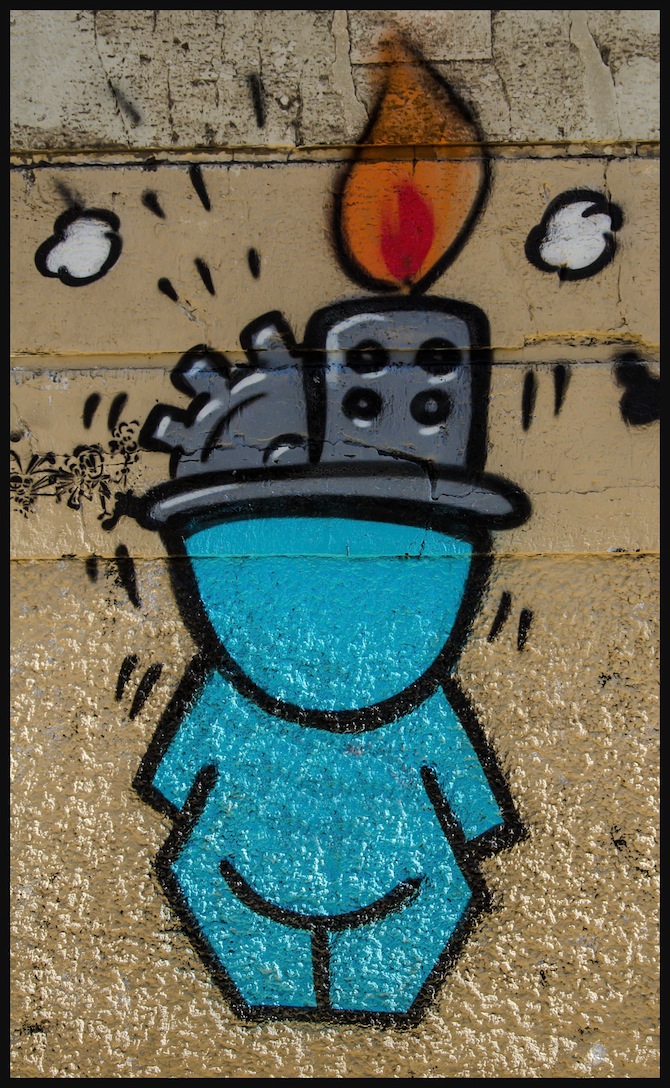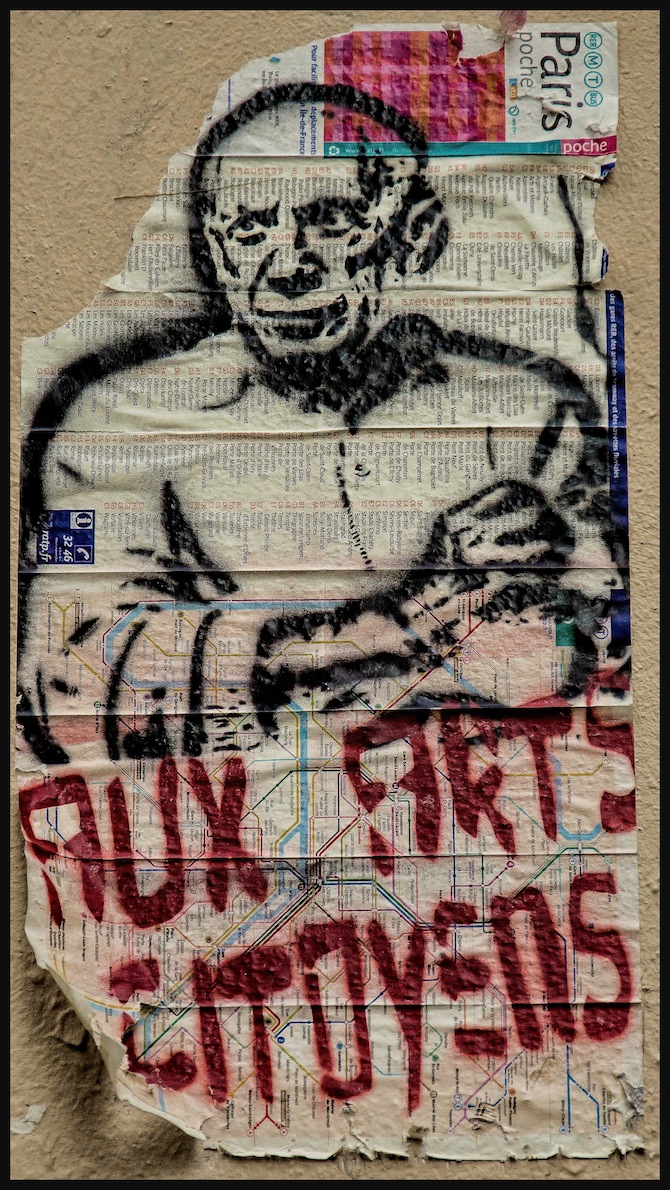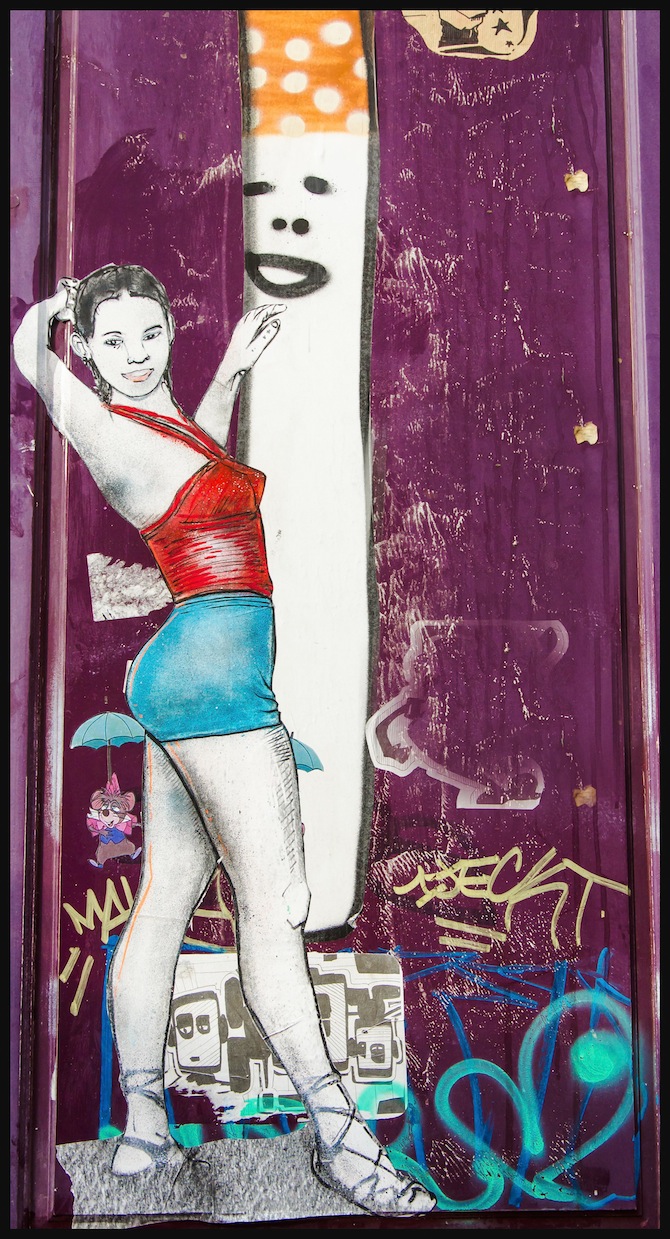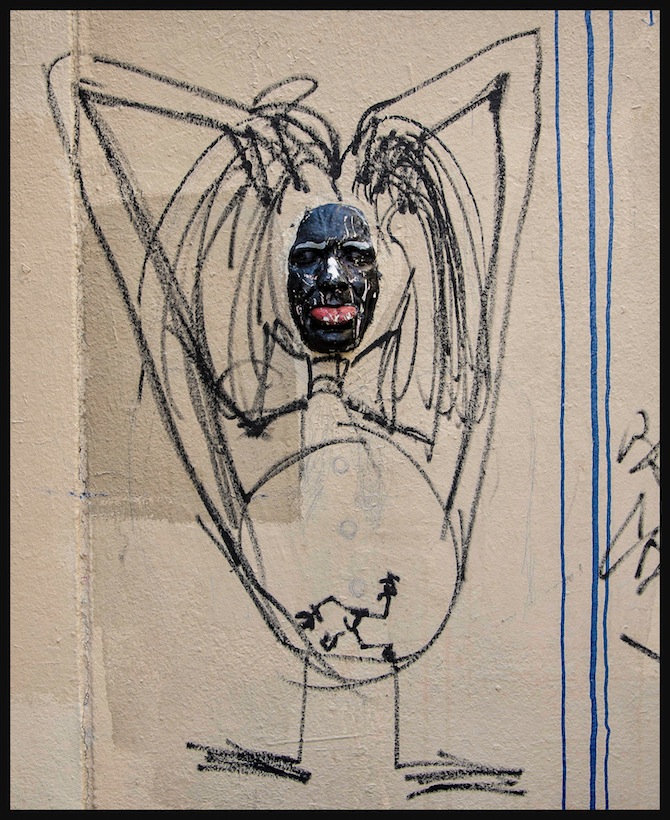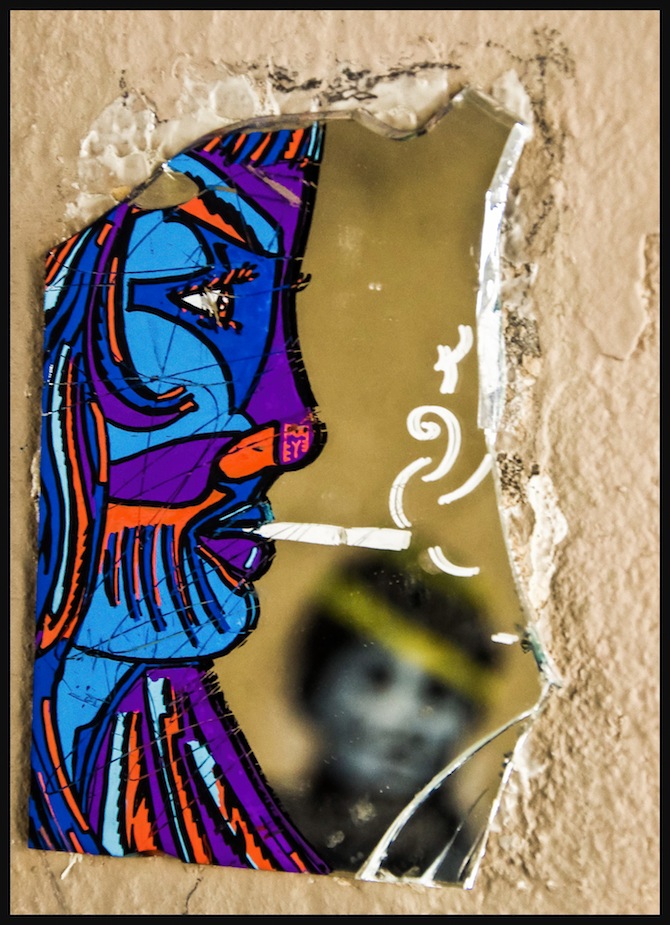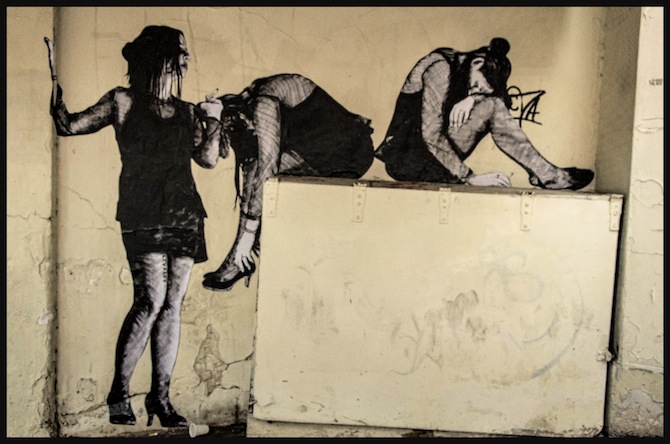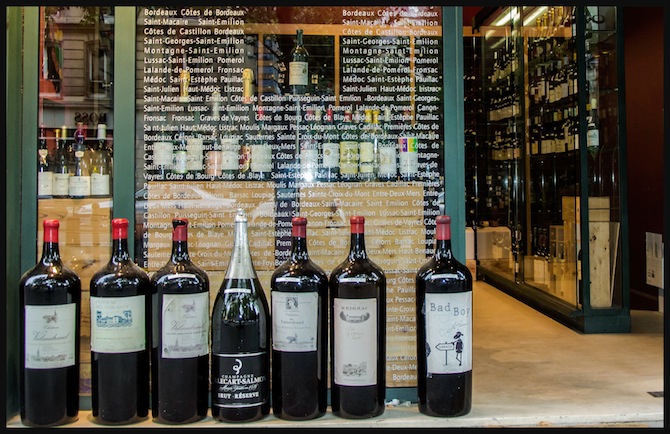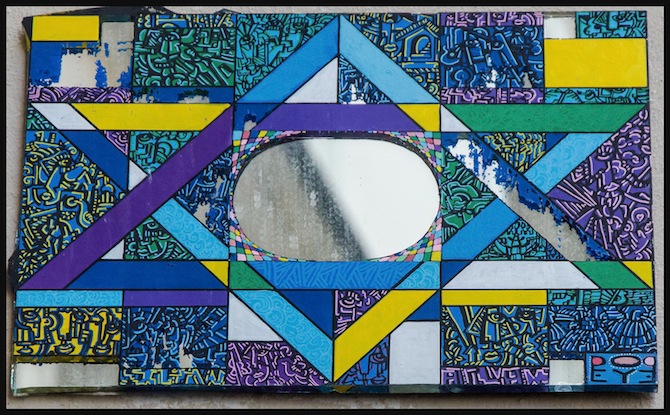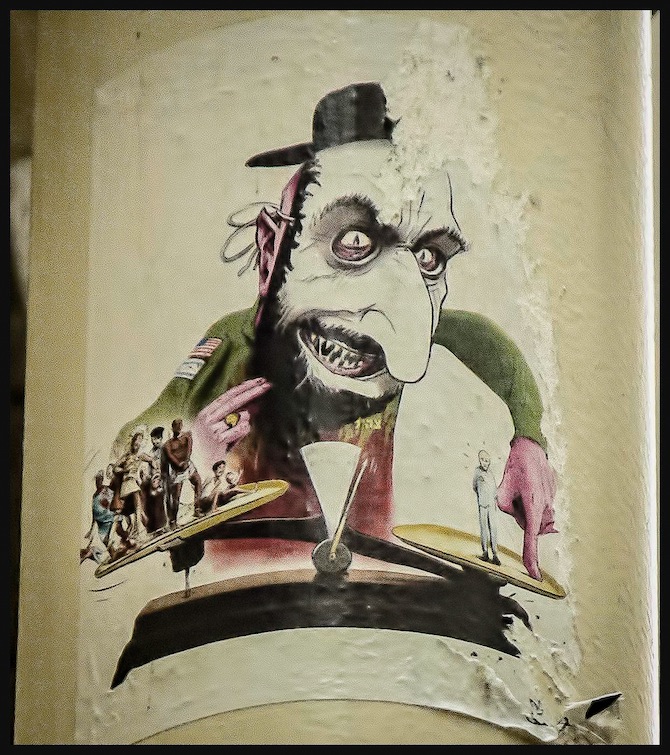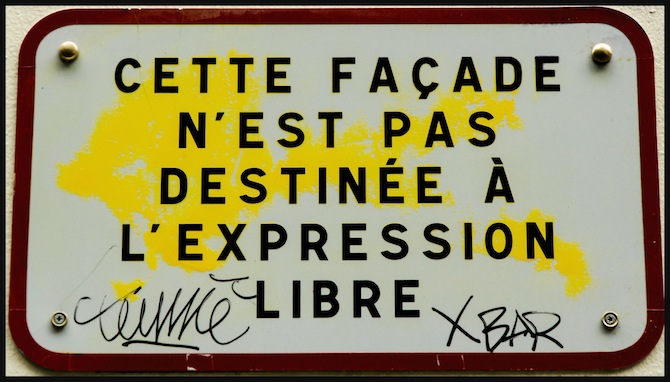Full Moon Plays
 01.17.2014
01.17.2014

We first see her near midnight a few blocks from our flat, high above l’Hôtel de Sens, down-turned eyes, mouth opened in song, cloud plumes scudding across her radiant face so fast you cannot tell if one of the three stars to the right might be an airplane.
They’re taking down the Christmas lights on the Île St-Louis. From the Pont des Tournelles we can see the Cyclops of the Tour Eiffel scanning the midnight sky.

It’s been a day of plays. Bien sûr, it’s the Full Moon!
First, a comedy on the rue des Ancienne Comédie. Chrystine and I chat in French as she cuts my hair. Her husband, Marc, has a French client; their French is better than mine, by far.
In comes a woman from Mexico with her German boyfriend, bearing gifts. La Virgen de Guadalupe (in chocolate?). She speaks only Spanish. Her boyfriend speaks only German, with a little Spanish. She wants to convey to Marc the haircut her boyfriend wants, only Marc doesn’t speak Spanish.
Ah, but his client does. The German communicates to his girlfriend in Spanish. She tells Marc’s client what he wants in Spanish. Marc’s client translates it into French for him. Chrystine speaks no Spanish; I understand it, but mix it up too much with French now to try speaking. We listen. The communication is full of laughter, and finally everyone understands. The Mexican woman and I speak and I think she’s said she’s from Los Angeles, but no, Angeles is her last name. More laughter.

Next, a surreal drama: Richard and I are on a crosstown bus, late for a party in the 20th arrondissement given by a street artist we dearly love, to honor his friends. We’re standing—the bus is crowded—when we hear the sounds of love-making, groaning, panting and moaning, over the p.a. system. Everyone glances around at each other—was that the bus driver, or are we picking up signals from some other, full moon, dimension?

A few minutes later, the bus driver announces on the p.a. that he’s annoyed with a young man standing near the back door. Everyone looks puzzled. Annoyed? Really? Et pourquoi ça?
The young man, who is tall and self-contained, shrugs, Qu’est qu’on peut faire?
More moaning sounds. There’s a ripple through the bus: do we have a demon bus driver here? Hmmmm…
The bus stops. I ask a French woman near the door what she thinks is going on.
She responds by calling out to the bus driver, Why are you bugging this man?
 Street art © 2014 Fred Le Chevalier
Street art © 2014 Fred Le Chevalier
The driver calls back in a baritone voice, It’s my bus; I can do whatever I want here.
The woman says, So you are the dictator, huh?
Oui, he says, C’est moi.
You certainly can do whatever you want, she says, but you might do it with a bit more grace.
Now, two North African-looking women at the front of the bus object to this woman’s calling the man’s authority into question, and shout at the French woman. The bus driver, his fans, and the woman at the back are going at it now.
Most of the other passengers laugh, or make that disapproving moue. Two Saharan African men roll their eyes, at either the voice of authority or the voice of rebellion.
And then we arrive at our stop on rue de Ménilmontant. All of us who disembark are laughing, laughing! Richard shakes hands with one of the African men. Good luck, they say in French. The bus to hell goes on.

Finally, a love story. Our friend, Fred, is seated at a long table surrounded by friends. He greets us warmly, makes introductions all around, shows us the buffet where we help ourselves to pasta, salad and tangy, salted feta straight from Greece. He pours us a good red wine. In the room at the back, an exhibit of Fred's artwork, the last day of the show.
Fred, the quintessential romantic, hovers close, protective, around his new girlfriend, whom many of us are meeting for the first time, pouring her wine, bringing one arm around her to do so like a chevalier sommelier.
Two gorgeous women who look like sisters, with bangs and deep red lipstick, turn out to be, not sisters, but band mates for a punk band who write their own feminist lyrics.
A screenwriter and her two friends arrive. Richard and I talk to her about our friend, John Truby’s screenwriting class coming next week to Paris. Oui! She knows his name, would like to take the class, but is about to start a new job.
Next to me, Fred’s oldest friend, Estelle, a lawyer, and I talk about vision quests and love.
A lately arrived artist, Doudou, has an open face, great warmth. He and Richard like each other, stumble through French to a few laughs.
 Street Art © 2014 Fred Le Chevalier
Street Art © 2014 Fred Le Chevalier
But it’s now time for our trek across town home. We tell these new friends it will be an hour walk, and to a person, they are amazed. "Walk? An hour?" In a land of motor scooters and incredible public transportation, the thought of a midnight walk across Paris seems alien to the natives.
The hour walk clears the head of wine, but not the giddiness of this full moon, full of drama day and night in Paris: language drama, attitude drama and the best kind of drama, gathering with friends to celebrate art and love.
 Street art © 2014 Fred Le Chevalier
Street art © 2014 Fred Le Chevalier
 Fred Le Chevalier,
Fred Le Chevalier,  bus,
bus,  full moon,
full moon,  giddiness,
giddiness,  love,
love,  wine in
wine in  Paris Life
Paris Life 

